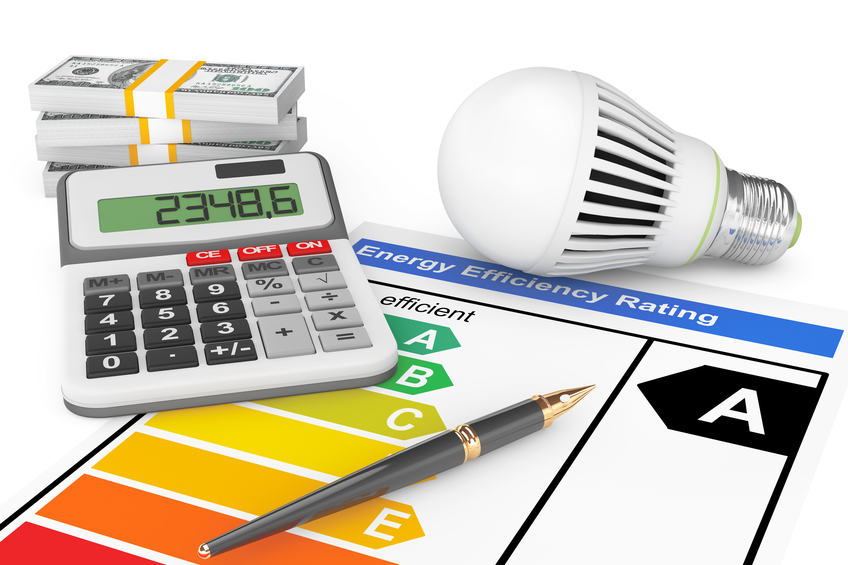British Columbia Sustainable Design 19 PDH Discount Package 1
An Introduction to Sustainable Design for Buildings (M02-025)
Estimating the Environmental Effects of Green Roofs (C02-075)
General Principals of Engineering Ethics for British Columbia Professional Engineers (BC1-001)
Lighting Evaluations and Upgrades (E02-028)
Natural Hazards and Sustainability for Residential Buildings (A02-011)
Power Factor in Electrical Energy Management (E04-014)
Water Efficiency Management Guide for Bathroom Suites (M01-019)
Guidelines for Selecting Cool Roofs (M02-042)

This online engineering PDH course addresses automatic temperature and humidity controls, space pressurization controls, safety controls, and energy monitoring and central supervisory control systems for heating, ventilating and air conditioning (HVAC) systems.
Energy efficient control systems are complete, reliable, fully functional, maintainable, fully integrated, addressable, control systems that have been properly designed, installed, and commissioned for efficient and cost-effective operation. In existing facilities, the design is integrated and interfaced into the existing control system so that the new equipment and conditions can be controlled and monitored similar to the existing controlled equipment.
This 2 PDH online course is intended for mechanical and electrical engineers, and other design and construction professionals seeking an introduction to energy efficient control systems for HVAC systems.
This P.Eng. continuing education course is intended to provide you with the following specific knowledge and skills:
- Knowing when to apply and not-apply humidity controls
- Knowing what parameters to monitor and control for air handlers
- Learning about the conditions to be controlled at central HVAC plants
- Knowing the special control issues with variable-air-volume (VAV) systems
- Understanding the importance of contractor submittals for control systems
- Knowing the situations where simultaneous heating and cooling controls are allowable
- Learning about mechanical ventilation controls
- Understanding the fundamentals of energy conservation control schemes
- Learning about fire and smoke protection controls on HVAC systems
In this professional engineering CEU course, you need to review the document titled, "An Introduction to Energy Efficient HVAC Controls".
Once you complete your course review, you need to take a multiple-choice quiz consisting of fifteen (15) questions to earn 2 PDH credits. The quiz will be based on the entire document.
Upon successful completion of the quiz, print your Certificate of Completion instantly. (Note: if you are paying by check or money order, you will be able to print it after we receive your payment.) For your convenience, we will also email it to you. Please note that you can log in to your account at any time to access and print your Certificate of Completion.

This online engineering PDH course explains the goals of the six main principles behind sustainable design, opportunities you can use to pursue them, and resources that will help you reach them. When you have completed this course, you will have a road map that will guide you in making sustainability an integral part of your management of building and infrastructure design and construction projects.
"Sustainable design" is no longer a boutique concept in the design and construction of buildings and related infrastructure. It is widely required by government agencies and is becoming more and more in demand by responsible private owners. Sustainable design seeks to reduce negative impacts on the environment, and the health and comfort of building occupants, thereby improving building performance. The basic objectives of sustainability are to reduce consumption of non-renewable resources, minimize waste, and create healthy, productive environments. Design and construction of buildings and related infrastructure create major direct and indirect impacts on the environment.
This 2 PDH online course is intended for those engineers, architects and construction professionals who are interested in learning more about the framework for applying sustainable design concepts in buildings.
This P.Eng. continuing education course is intended to provide you with the following specific knowledge and skills:
- Learn about the six principles of sustainable design
- Learn about the seven principles of sustainable site planning
- Learn about the five principles of energy use optimization
- Learn about the seven principles for the protection and conservation of water
- Learn about the eight principles for employment of environmentally preferable products and materials
- Learn about the ten principles to employ in enhancing indoor environmental quality
- Learn about the five principles for optimization of operational and maintenance practices
- Learn about the resources that you can use learn more about your sustainability options, and how to access and employ them
In this professional engineering CEU course, you need to review the course document titled, "An Introduction to Sustainable Design for Buildings".
Upon successful completion of the quiz, print your Certificate of Completion instantly. (Note: if you are paying by check or money order, you will be able to print it after we receive your payment.) For your convenience, we will also email it to you. Please note that you can log in to your account at any time to access and print your Certificate of Completion.

This online engineering PDH course provides insight on how to estimate the positive environmental effects of green roof installations in cities. This is accomplished by providing a brief introduction to the basic concepts and definitions relating to urban environmental pollution, followed by a case study of the Kansas City metropolitan area.
A green roof—also called a vegetated roof or eco-roof—is a roof with soil and plants placed on top of a conventional roof. Green roofs are growing in popularity, as they have proven to be a cost-effective strategy for creating more livable and sustainable cities. Integrating nature-based solutions like green roofs into the urban landscape has several benefits to the environment, public health, and society.
This 2 PDH online course is applicable to architects, sustainability, environmental, and building engineers, as well as other technical personnel interested in learning more about the numerous benefits of green roof installations in urban areas.
This P.Eng. continuing education course is intended to provide you with the following specific knowledge and skills:
- Learning how green roofs benefit the environment and public health
- Familiarizing with green roofs using as a case study (Kansas City, Missouri)
- Understanding the analytical process, methodology, and tools used in estimating the benefits of green roof installations
- Understanding the limitations of the model and results of the presented case study
Upon successful completion of the quiz, print your Certificate of Completion instantly. (Note: if you are paying by check or money order, you will be able to print it after we receive your payment.) For your convenience, we will also email it to you. Please note that you can log in to your account at any time to access and print your Certificate of Completion.

This online engineering PDH ethics course is (1) the study of moral issues and decisions confronting individuals and organizations involved in engineering and (2) the study of related questions about moral conduct, character, ideals and relationships of peoples and organizations involved in technological development (Martin and Schinzinger, Ethics in Engineering).
This course will address the principles of engineering ethics that every engineer is expected to live by when practicing their profession. It will also present unique ethical case studies randomly selected to demonstrate ethical challenges for professional engineers and alternatives to address these challenges.
This 1 PDH online course is applicable to Professional Engineers licensed in the Province of British Columbia and who are required to demonstrate continuing professional competency in engineering ethics as a condition of their license renewal. For each renewal period, every licensee must complete at least one (1) professional development hour relative to the principals of professional responsibility, conduct and ethics.
This P.Eng. continuing education course is intended to provide you with the following specific knowledge and skills:
- Understanding the definition of engineering ethics
- Learning how to hold the utmost safety, health, and welfare of the public when practicing your profession
- Familiarizing with the conditions to issue public statements
- Gaining a general overview on how to represent each employer or client as a faithful trustee
- Learning how to build your professional reputation on the merit of your services
- Understanding professional ethical practices through presenting realistic case studies
- Learning how to handle proprietary information and intellectual property rights
Upon successful completion of the quiz, print your Certificate of Completion instantly. (Note: if you are paying by check or money order, you will be able to print it after we receive your payment.) For your convenience, we will also email it to you. Please note that you can log in to your account at any time to access and print your Certificate of Completion.

This online engineering PDH course provides guidance on how to approach and perform an evaluation or audit of the lighting that occurs at a facility.
Lighting is a critical concern, as it influences the performance of necessary task in an office or manufacturing setting and accounts for, on average, about 34% of total energy usage. The best way to reduce your lighting energy usage is to switch to more energy efficient bulbs and fixtures and optimizing your lighting for the tasks at hand.
This course describes the basic nomenclature about lighting, the different types of lighting fixtures and their advantages and disadvantages for a facility, and the fundamentals on how to perform a formal lighting evaluation. It provides knowledge on the factors and information necessary to determine whether a lighting upgrade is necessary and several potential options with technical and economic advantages and disadvantages. It provides an overview of how to proceed in conducting a lighting evaluation at a diverse facility.
This 2 PDH online course is applicable to electrical, mechanical, energy, and environmental engineers involved with the energy, and sustainability studies to determine how a facility can reduce its energy costs and perform its functions more energy efficiently.
This PE continuing education course is intended to provide you with the following specific knowledge and skills:
- Familiarizing with the basic nomenclature about lighting
- Familiarizing with the different types of lighting available and how to determine which have the greatest advantages for the facility's needs
- Learning how to implement a lighting evaluation program
- Learning how to calculate cost savings using ROI calculations
- Understanding strategies to provide adequate task lighting while reducing energy usage
- Exploring advantages and disadvantages of several different lighting fixtures
Upon successful completion of the quiz, print your Certificate of Completion instantly. (Note: if you are paying by check or money order, you will be able to print it after we receive your payment.) For your convenience, we will also email it to you. Please note that you can log in to your account at any time to access and print your Certificate of Completion.

This engineering online PDH provides a description of the interactions, both positive and negative, between common green building practices and the robustness of residential buildings to withstand natural hazards.
The course provides an overview of existing residential green building rating systems in the United States. It describes a range of common green building practices and their interactions with structural performance and durability. Specific concerns related to seismic, wind, flood, and wildfire are discussed along with a summary table that ties several specific green building practices to design, detailing, and installation considerations to enable those practices to be implemented without compromising natural hazard resistance.
Sustainable building design concepts are increasingly being incorporated into residential building design and construction through green building rating systems. While the environmental benefits associated with adopting green building practices can be significant, these practices must be implemented in a manner that does not compromise the building’s resistance to natural hazards, such as high winds, earthquakes, floods, or wildfires.
This 2 PDH online course is applicable to civil, building, and sustainability engineers who are looking to gain knowledge on the considerations of sustainable designs and natural hazards resilience.
This P.Eng. continuing education course is intended to provide you with the following specific knowledge and skills:
- Understanding the existing residential green building rating systems in the United States
- Familiarizing with the common green building practices and their interactions with structural performance and durability
- Learning about specific concerns related to seismic, wind, flood, and wildfire
- Understanding the ties between specific green building practices and design, detailing, and installation considerations to enable those practices to be implemented without compromising natural hazard resistance
Upon successful completion of the quiz, print your Certificate of Completion instantly. (Note: if you are paying by check or money order, you will be able to print it after we receive your payment.) For your convenience, we will also email it to you. Please note that you can log in to your account at any time to access and print your Certificate of Completion.

This online engineering PDH course briefly highlights a systematic approach to the measurement, correction and control of power factor with the objective of cutting energy costs.
Although terms 'power factor measurement' and 'power factor correction' are well known to electrical engineers, the real importance of 'power factor' is not always recognized or little understood. Power factor is the percentage of electricity that is being used to do useful work. It is expressed as a ratio. For example, a power factor of 0.72 would mean only 72% of the power is being used for useful work. Power factor correction is the method used to fix the problems that cause power to be wasted. Energy is saved, and penalties levied by power companies are reduced or eliminated.
This 4 PDH online course is aimed at students, electrical & control engineers, energy auditors, operational & maintenance engineers, contractors and system designers who are responsible for design and operation of the system.
This P.Eng. continuing education course is intended to provide you with the following specific knowledge and skills:
- Understanding the importance of power factor improvement;
- Understanding the difference between real, apparent and reactive power;
- Learning about the direct and indirect cost of low power factor;
- Knowing the benefits of high power factor;
- Knowing the causes of low power factor;
- Understanding the means of improving power factor;
- Understanding the selection aspects of power factor capacitors;
- Learning about the harmonic distortion and power factor correction;
- Ability to conceptualize, judge and select the right system
In this professional engineering CEU course, you need to review the document titled "Power Factor in Electrical Energy Management".
Upon successful completion of the quiz, print your Certificate of Completion instantly. (Note: if you are paying by check or money order, you will be able to print it after we receive your payment.) For your convenience, we will also email it to you. Please note that you can log in to your account at any time to access and print your Certificate of Completion.

This online engineering PDH course provides basic information on how to improve water management, reduce property water use, and subsequently improve EPA Water Score.
Bathrooms offer a clear opportunity for properties to save significant amounts of water. Use of toilets, faucets, showerheads, and other sanitary fixtures in the bathroom suite typically represent a significant percentage of water use in properties. Replacing bathroom fixtures with water-efficient products, and WaterSense labeled products when applicable, can provide the most significant opportunity for water and energy savings, particularly in older buildings with inefficient fixtures.
This 1 PDH online course is applicable to mechanical and sustainability engineers, as well as other technical personnel who are interested in improving water management and minimizing wastewater.
This P.Eng. continuing education course is intended to provide you with the following specific knowledge and skills:
- Knowing the background and importance of water management for bathrooms
- Familiarizing with bathroom maintenance best management practices
- Understanding water savings calculations for toilets, bathroom sink faucets, bath and shower diverters, and showerheads
- Knowing the replacement options when installing new toilet fixtures or replacing old, inefficient products
Upon successful completion of the quiz, print your Certificate of Completion instantly. (Note: if you are paying by check or money order, you will be able to print it after we receive your payment.) For your convenience, we will also email it to you. Please note that you can log in to your account at any time to access and print your Certificate of Completion.

This online engineering PDH course presents an overview of cool roofs, which can help many building owners save money while protecting the environment. It illustrates how cool roofs work, what kinds of cool roof options are available, and how to determine if cool roofing is an appropriate energy efficiency option for your building.
Just as wearing light-colored clothing can help keep a person cool on a sunny day, cool roofs use solar-reflective surfaces to maintain lower roof temperatures. Traditional dark roofs can reach temperatures of 150ºF (66ºC) or more in the summer sun. A cool roof under the same conditions could stay more than 50°F (28ºC) cooler.
This 2 PDH online course is applicable to engineers, architects, designers, contractors, building owners, and all personnel interested in gaining a better understating of cool roofs.
This P.Eng. continuing education course is intended to provide you with the following specific knowledge and skills:
- Understanding what is a cool roof
- Learning about the different types of cool roofs
- Knowing if you should use a cool roof
- Learning about cool roof selection and application
- Knowing the precautions and considerations behind cool roofs
In this professional engineering CEU course, you need to review the Department of Energy (DOE) Publication “Guidelines for Selecting Cool Roofs”, Building Technologies Program, published on July 2010.
Upon successful completion of the quiz, print your Certificate of Completion instantly. (Note: if you are paying by check or money order, you will be able to print it after we receive your payment.) For your convenience, we will also email it to you. Please note that you can log in to your account at any time to access and print your Certificate of Completion.